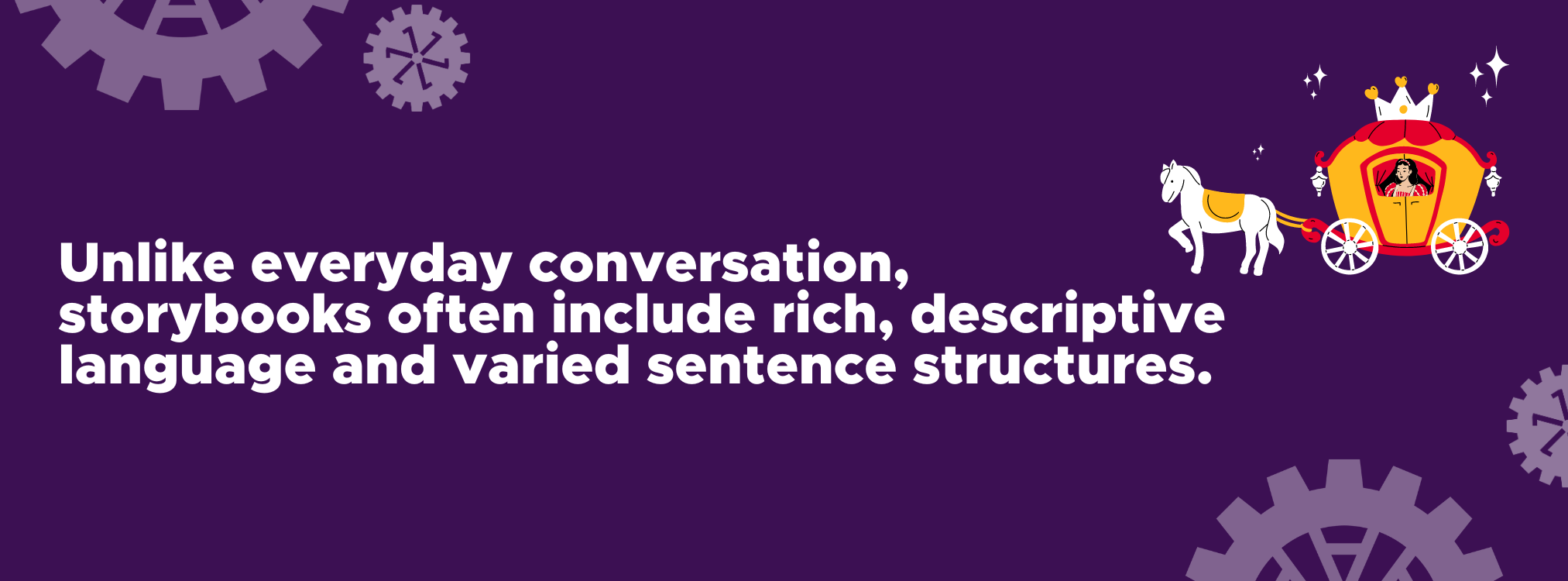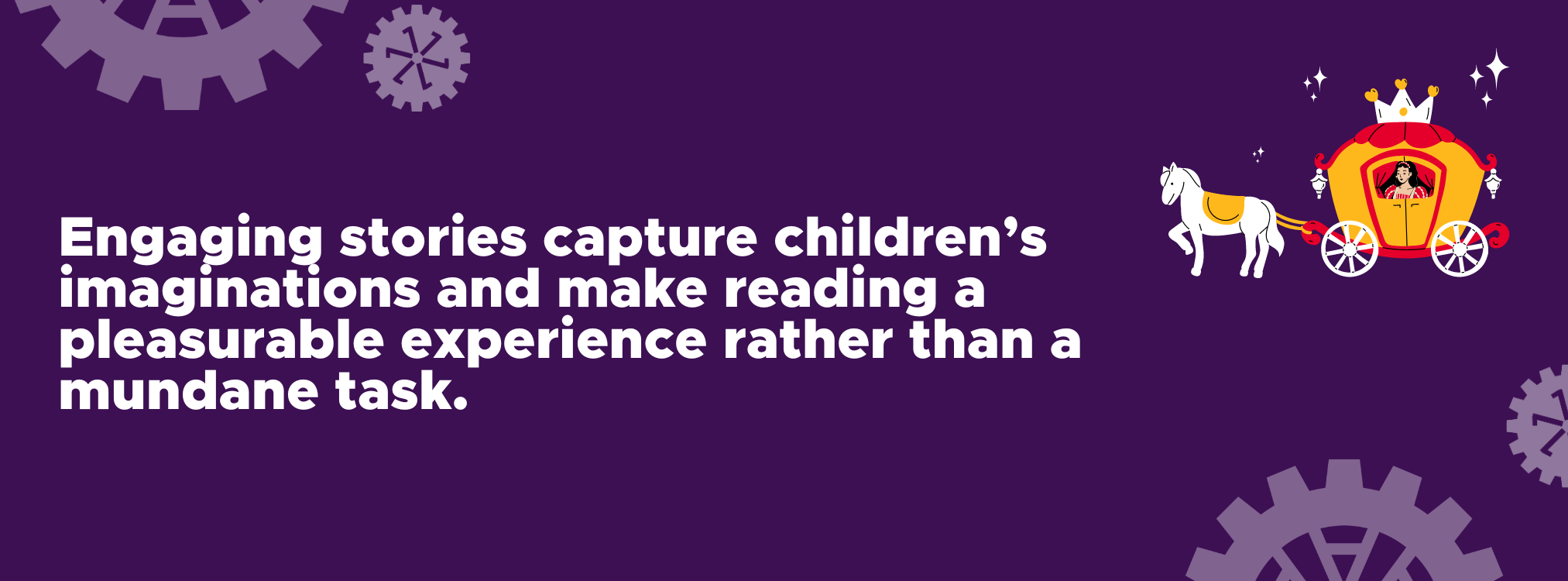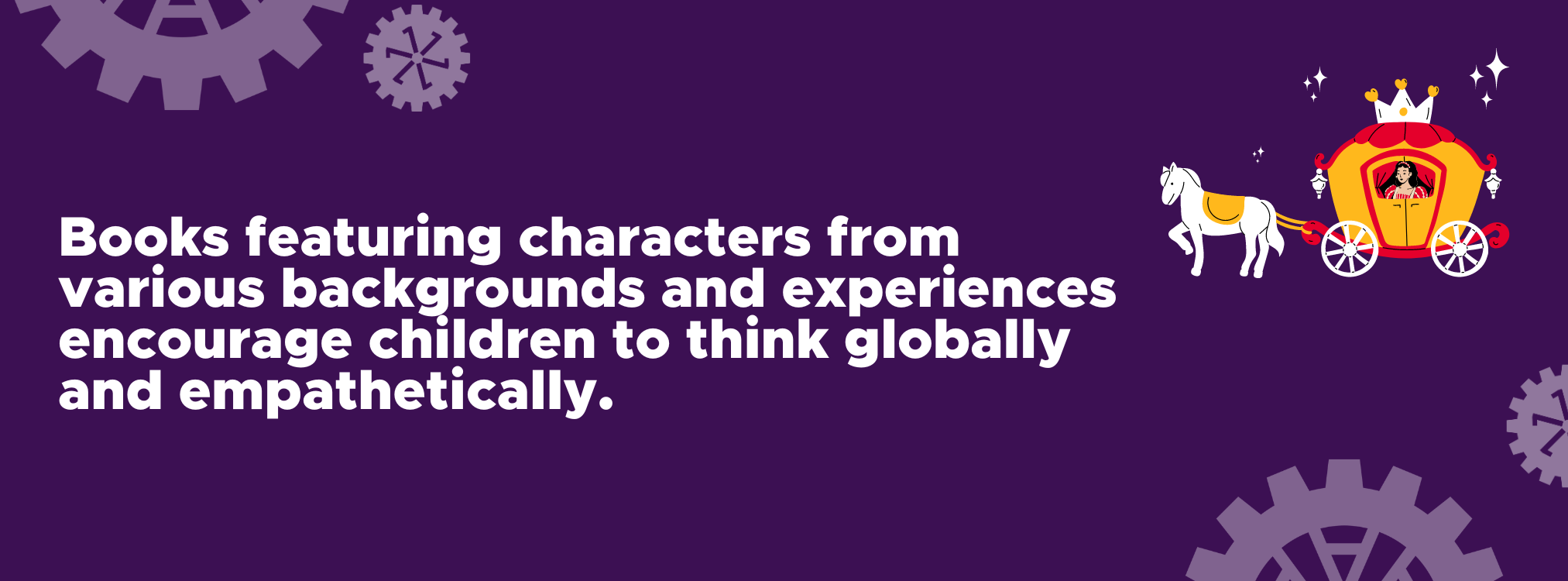The Power of Storybooks: Building a Strong Foundation in English for Children

In today’s rapid, tech-focused world, the appeal of a well-made storybook might seem overshadowed by flashy gadgets and interactive apps. Nonetheless, the enduring practice of reading storybooks to children remains an exceptional way to establish a strong foundation in English and inspire a lasting love for language. Let’s examine why storybooks are essential for young learners and how they lay the groundwork for developing proficient English skills.

Enhancing Vocabulary and Language Skills
One of the key benefits of reading storybooks is the exposure they offer to new vocabulary. Unlike everyday conversations, storybooks often feature rich, descriptive language and varied sentence structures. This exposure helps children learn words in context, making it easier to grasp and remember their meanings. For example, a story might incorporate terms like "glimmering," "treacherous," or "courageous" within a captivating narrative, allowing children to understand these words through their use in context rather than through rote memorisation.
Storybooks also frequently introduce idiomatic expressions, figurative language, and diverse sentence structures. These elements enrich a child’s understanding of English and support them in expressing themselves more creatively and effectively.
Developing Listening and Comprehension Skills
Reading aloud to children is a great way to boost their listening and comprehension abilities. When a parent or teacher reads a story, they demonstrate fluent reading, correct pronunciation, and proper intonation. This demonstration helps children learn how to process and interpret written language. Moreover, listening to stories prompts children to follow plots, recall details, and make inferences, which are all essential for reading comprehension.
Interactive storytelling, where children are invited to predict future events or discuss characters' motivations, further enhances their engagement and understanding. This interactive approach allows children to connect with the material more deeply, making reading a more active and enjoyable experience.
Fostering Imagination and Creativity
Storybooks are more than just a means of learning new words; they open doors to imaginative realms and diverse viewpoints. As children dive into stories, they encounter various settings, characters, and scenarios. This exposure sparks their creativity and encourages them to think imaginatively. Often, storytime leads to imaginative play, where children craft their own stories or reenact scenes, reinforcing their understanding and enjoyment of the language.
The ability to imagine and create is closely linked to language development. When children invent stories or dialogues, they practice using language in new and creative ways, which helps strengthen their grasp of vocabulary and grammar. This creative interaction with language can also make reading a more enjoyable and engaging experience.

Building Emotional Intelligence
One of the most significant impacts of storybooks is their ability to nurture a love for reading. Captivating stories spark children's imaginations and transform reading into an enjoyable activity rather than a routine chore. When children connect reading with pleasure, they are more inclined to explore books independently and continue their reading journey as they grow.
Fostering a love for reading early on is crucial for academic success and lifelong learning. Children who find joy in reading are more likely to read frequently, which enhances their language skills, academic performance, and cognitive development. Storybooks lay the groundwork for this enthusiasm, creating a positive cycle where increased reading leads to greater proficiency.
Encouraging Family Bonding
Reading storybooks together is also a fantastic way to strengthen family connections. Whether it’s a bedtime tradition or a weekend activity, sharing stories creates meaningful moments between parents, caregivers, and children. This shared experience not only boosts the child’s language development but also cultivates a supportive and nurturing learning environment.
Moreover, when parents and caregivers are actively involved in reading, they can guide children’s comprehension and interpretation of texts. This engagement helps reinforce the language skills being developed and offers children a model of enthusiastic and engaged reading.
Supporting Cognitive Development
Storybooks aid in various aspects of cognitive growth. They present children with concepts like cause and effect, sequencing, and problem-solving through captivating narratives. For instance, a story featuring a character overcoming challenges can teach children about perseverance and critical thinking. These cognitive skills are crucial for both academic achievement and everyday life.
Additionally, the structure of stories, with their beginning, middle, and end, helps children grasp narrative sequences and organisational patterns. This understanding benefits not only their reading but also their writing and other forms of communication.

Expanding Worldviews
Storybooks frequently introduce children to different cultures, historical periods, and societal norms. This exposure expands their understanding of the world and fosters an appreciation for diversity. Books with characters from varied backgrounds and experiences encourage children to think more globally and empathetically.
Reading about different cultures and viewpoints helps children build a richer vocabulary and a greater appreciation for how language conveys diverse experiences. This broadened perspective enhances their language skills and improves their ability to communicate effectively in a multicultural society.
Conclusion
In summary, storybooks are essential for establishing a solid foundation in English for children. They enhance vocabulary, develop listening and comprehension skills, encourage imagination and creativity, and support emotional and cognitive growth. Moreover, storybooks offer opportunities for family bonding and introduce diverse perspectives, further enriching language skills and broadening worldviews.
As parents, educators, and caregivers, embracing the value of storybooks is one of the most effective ways to foster children’s language development and nurture a lifelong passion for reading. In a world often dominated by screens, the simple act of sharing a story can be a profound gift, setting the stage for a bright future in English and beyond.
At NumberWorks’nWords, we recognise the crucial role reading plays in children’s daily lives. If you’re seeking additional support for your child, our team is here to assist. Contact us today to schedule a free, no-obligation learning assessment for your child.



